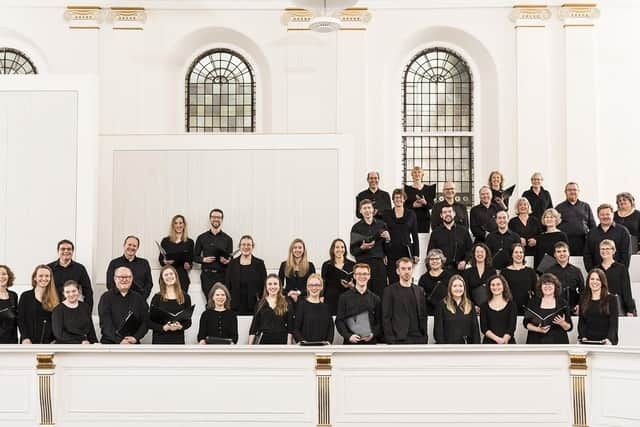Music review: SCO, SCO Chorus & Richard Egarr, Usher Hall, Edinburgh
SCO, SCO Chorus & Richard Egarr, Usher Hall, Edinburgh *****
With a luxury line-up of five top-notch vocal soloists, plus the SCO Chorus on reliably incisive form, and director Richard Egarr goading the SCO instrumentalists into ever more compelling playing, this was always going to be a Bach B minor Mass to remember. The expectant audience, which almost filled the Usher Hall, seemed to think so too.
Advertisement
Hide AdAdvertisement
Hide AdAnd it didn’t disappoint. Egarr at times almost seemed to stand back to admire what was happening in front of him, though at others he thrust his clenched fist forward to summon sonorous basslines. The Chorus provided crystal-clear enunciation and an uncanny mix of balanced blend and individual character in their voices. They were cunningly arranged, too, in a long line behind the orchestra, making the intertwining lines of Bach’s counterpoint all the more evident. Egarr’s direction delivered such clarity, in fact, that the evening seemed almost as much a masterclass in the music’s mechanics as it was a performance.


His quintet of soloists each had their moment in the spotlight, sopranos Rowan Pierce and Mhairi Lawson tripping off each other in a jaunty ‘Christe eleison’, while Lawson returned with wonderfully characterful support from orchestra leader Stephanie Gonley in a ‘Laudamus te’ full of blossoming promise. Baritone Roderick Williams offered a calmly authoritative ‘Quoniam’, while SCO principal flautist André Cebrián provided buoyant, sprightly accompaniment to tenor James Gilchrist’s deeply felt ‘Benedictus’. The lusciously liquid tones of mezzo Helen Charlston provided an ideal vehicle for the deliberate tread of the thoughtful penultimate ‘Agnus Dei’.
There’s always the danger that Bach’s B minor Mass might be delivered as an overpowering, overwhelming musical monolith – but there was none of that in Egarr’s nimble account. Instead, he stressed the piece’s sometimes wildly divergent styles, and its profound human emotion. It was imposing, inevitably, even occasionally monumental, but deeply moving too.